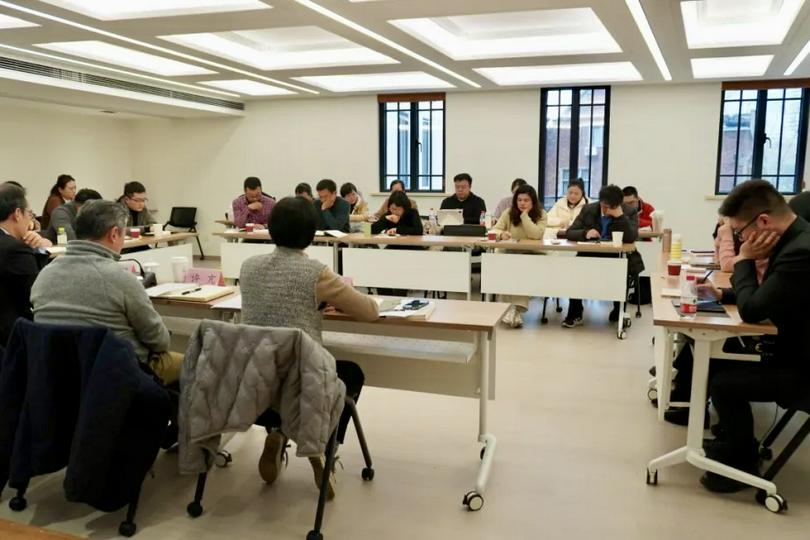Last Friday, Shanghai CC&TSPM held a winter vacation study and exchange meeting for current seminary students at the Shanghai Christian Sinicization Practice Center. The theme was the Sinicization of Christianity, and 24 seminary students attended the meeting.
According to Shanghai CC&TSPM, at the exchange meeting on February 14, Rev. Xu Lei, deputy secretary general of Shanghai CC&TSPM, deputy director and secretary general of Pudong New Area CC&TSPM, shared his master's thesis, "Exploration and Innovation in the Study of Religious Issues of Our Country at the Beginning of Reform and Opening Up," and then Rev. Huang Huan, deputy director and secretary general of Chongming District CC&TSPM, shared her master's thesis, "' Chinese John the Baptist': A Preliminary Study on Song Shangjie's View of Holiness."
the students discussed Professor Zhuo Xinping’s book Christianity and Cultural Context in China and shared their understanding and thoughts on the sinicization of Christianity from multiple dimensions, including article structure, academic research, and church practice.
Mr. Zhuo Xinping, a former director and first-level researcher at the Institute of World Religions under the Chinese Academy of Social Sciences (CASS) and honorary president of the Chinese Society of Religious Studies, is an expert in religious studies who enjoys a good reputation at home and abroad in the current Chinese academic circles.
Xu Kang, director of the Christian Affairs Office at the Shanghai Municipal Bureau of Ethnic and Religious Affairs, pointed out that the Communist Party and China's government have always attached great importance to the construction of a team of religious talents, and in the new era, it is necessary to cultivate "dual" talents who are both proficient in religious classical teachings and Chinese traditional culture to promote the healthy inheritance of religion.
- Translated by Livingstone Shi












